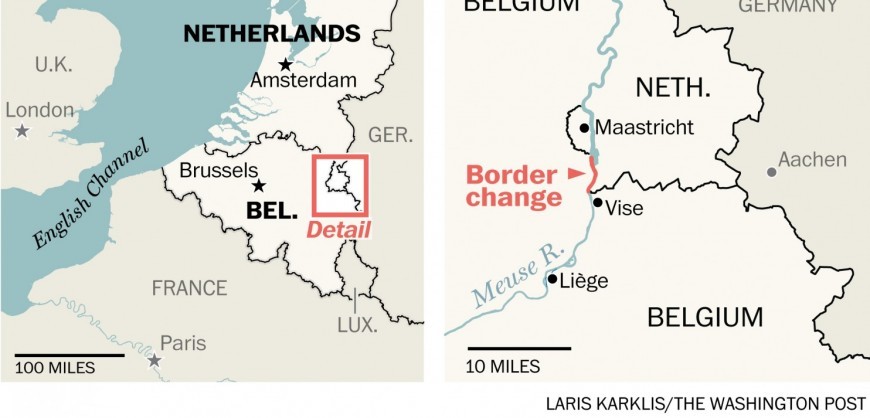Traditionally, land and border disputes result in long, bloody battles. But judging from the unusual agreement reached between Belgium and the Netherlands this week, it would appear that not all territorial exchanges have to be contentious and devisive.
In a state visit by King Philippe of Belgium to the Netherlands on Monday, a treaty was signed by both countries to swap certain portions of territory on their respective borders, thus resolving a decades-old situation that had led to “pockets of lawlessness” on both sides. If the agreement is ratified by the parliaments of both countries next year, Belgium will hand over 40.45 acres of land to the Netherlands, which consists of two uninhabited areas, Presqu’île de L’llal and Presqu’île d’Eijsden. In exchange, the Netherlands will give Belgium the area of Presqu’île Petit-Gravier, which is an area of roughly 7.63 acres.
At the treaty-signing ceremony, according the Dutch newspaper AD, Foreign Minister Didier Reynders told reporters how remarkable it was that the border change had taken place without conflict. “Perhaps that is only possible between the Netherlands and Belgium,” he said.
The land swap was an attempt to rectify a geographical oddity. For over a century, the Meuse River had been the natural border between the Belgian municipality of Vise and its neighboring Dutch municipalities of Maastricht and Eijsden-Margraten. Following dredging works between 1960 and 1980, the course of the river was straightened to make the connection between the Juliana Canal and the Albert Canal easier, which resulted in small plots of Belgian land on the Dutch side of the river, and vice versa.
The altered river route meant that the 1843 Treaty of Maastricht, which had created the borders between Belgium and the Netherlands, was no longer accurate. The oddity also made law enforcement on both peninsulas challenging on both sides.If all goes well, the harmonious border swap will come into effect as of 2018.
Source: The Washington Post




































